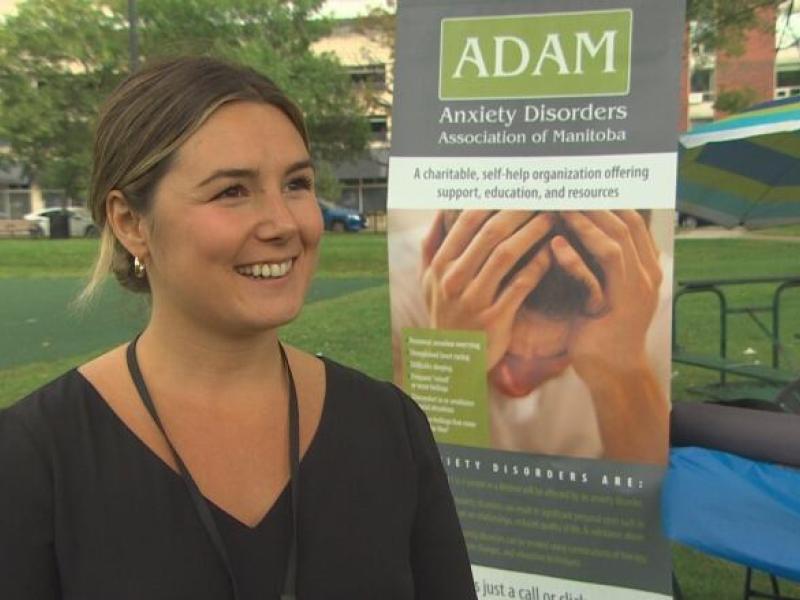'Back to School' Anxiety: Tips for Parents
Here are things you can do at home to help your child manage his or her anxiety disorder:
- Pay attention to your child’s feelings.
- Stay calm when your child becomes anxious about a situation or event.
- Recognize and praise small accomplishments.
- Don’t punish mistakes or lack of progress.
- Be flexible and try to maintain a normal routine.
- Modify expectations during stressful periods.
Plan for transitions (For example, allow extra time in the morning if getting to school is difficult).
Keep in mind that your child’s anxiety disorder diagnosis is not a sign of poor parenting. It may add stress to family life, however. It is helpful to build a support network of relatives and friends.
It's important that you have the same expectations of your anxious child that you would of another child, according to psychologist Lynn Siqueland, PhD. She has specialized in treating children and adolescents with anxiety disorders for more than 15 years. She offers these parenting tips for anxious kids, as well as ways to manage siblings, whose lives are also affected.
School Refusal
School refusal describes the disorder of a child who refuses to go to school on a regular basis or has problems staying in school.
Symptoms
Children with school refusal may complain of physical symptoms shortly before it is time to leave for school or repeatedly ask to visit the school nurse. If the child is allowed to stay home, the symptoms quickly disappear, only to reappear the next morning. In some cases a child may refuse to leave the house.
Common physical symptoms include headaches, stomachaches, nausea, or diarrhea. But tantrums, inflexibility, separation anxiety, avoidance, and defiance may show up, too.
Reasons for school refusal
Starting school, moving, and other stressful life events may trigger the onset of school refusal. Other reasons include the child’s fear that something will happen to a parent after he is in school, fear that she won’t do well in school, or fear of another student.
Often a symptom of a deeper problem, anxiety-based school refusal affects 2 to 5 percent of school-age children. It commonly takes place between the ages of five and six and between ten and eleven, and at times of transition, such as entering middle and high school.
Children who suffer from school refusal tend to have average or above-average intelligence. But they may develop serious educational or social problems if their fears and anxiety keep them away from school and friends for any length of time.
What parents can do
"The most important thing a parent can do is obtain a comprehensive evaluation from a mental health professional,” says ADAA board member Daniel Pine, MD, who directs research on anxiety disorders in children and adolescents at the National Institute of Mental Health.
That evaluation will reveal the reasons behind the school refusal and can help determine what kind of treatment will be best. Your child’s pediatrician should be able to recommend a mental health professional in your area who works with children.
Meanwhile, keep your children in school. Missing school reinforces anxiety rather than alleviating it. The following tips will help you and your child develop coping strategies for school anxieties and other stressful situations.
Expose children to school in small degrees, increasing exposure slowly over time. Eventually this will help them realize there is nothing to fear and that nothing bad will happen.
Talk with your child about feelings and fears, which helps reduce them.
Emphasize the positive aspects of going to school: being with friends, learning a favorite subject, and playing at recess.
Arrange an informal meeting with your child’s teacher away from the classroom.
Meet with the school guidance counselor for extra support and direction.
Try self-help methods with your child. In addition to a therapist’s recommendations, a good self-help book will provide relaxation techniques. Be open to new ideas so that your child is, too.
Encourage hobbies and interests. Fun is relaxation, and hobbies are good distractions that help build self-confidence.
Help your child establish a support system. A variety of people should be in your child’s life—other children as well as family members or teachers who are willing to talk with your child should the occasion arise.
Learn about your child’s anxiety disorder and treatment options. Find out more about children’s anxiety disorders.
Information on Test Anxiety
Source: http://www.adaa.org/living-with-anxiety/children



